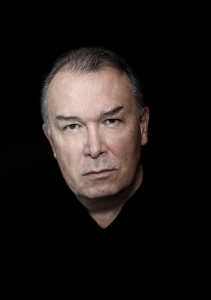Lech Majewski

Film, theatre, opera and television director, screenwriter, cinematographer, composer, designer, producer, poet, writer, painter, sculptor, poster designer, photographer. He was born on August 30, 1953, in Katowice. He studied at the Warsaw Academy of Fine Arts. A graduate of the Directing Department of the State School of Film, Television and Theatre in Łódź (1977, diploma in 1978). Before turning to cinema and theatre, he had published poems in magazines such as "Nowy Wyraz", "Poezja” and "Literatura". He is the author of several books of poetry: Baśnie z tysiąca nocy i jednego miasta/Tales of a Thousand Nights and One City (1977), Poszukiwanie raju/Searching for Paradise (1978), Mieszkanie/Apartment (1981), Muzeum mojej nędzy/Museum of My Misery (1997), Święty Sebastian/St. Sebastian (1998), and the novels Kasztanaja (1981), Szczury Manhattanu/Rats of Manhattan (1993), Pielgrzymka do grobu Brigitte Bardot Cudownej/Pilgrimage to the tomb of the Miraculous Brigitte Bardot (1996), as well as the essay Asa Nisi Masa. Magia w 8 i 1/2 Felliniego/Asa Nisi Masa. Magic in Fellini’s 8 and 1/2 (1994).
In 1977, he directed Homer's Odyssey for the Studio Theatre in Warsaw. A year later, he made the medium-length novella Zwiastowanie/The Annunciation as part of the film Zapowiedź ciszy/Silence (1978). His independent directorial debut was Rycerz/Knight (1980) filmed two years later – an unconventional story set in the Middle Ages. In 1981, he went to the festival in Cambridge and remained in England afterwards. A year later, he staged Odyssey on barges on the Thames. The film Lot świerkowej gęsi/The Flight of the Spruce Goose, made in the United States, launched his international career, continuing with the British-Swiss-Brazilian Więzień z Rio/The Prisoner of Rio (1988) and the US-Polish co-production Ewangelia według Harry’ego/Gospel According to Harry (1993). Majewski also wrote and produced Julian Schnabel's film Basquiat (1995).
In 1997, he made an "autobiographical opera" for Polish TV – Pokój saren/The Roe’s Room (1997), and two years later – Wojaczek (awards in Gdynia, Łagów, Barcelona, Coroto, Trenčianske Teplice), a poignant story – set in the reality of communist Poland – about the last days of a rebel poet, who died tragically at the age of 26. Another film, Angelus (2001), is devoted to the occult Janów group which operated in Silesia between the 1930s- 1950s, and their involvement in “mysterious matters” helped the group’s members to survive Nazi occupation and Stalinist times. Szklane usta/Glass Lips (2006) is an unconventional poetic essay, based on the famous video art Krew poety/Blood of a Poet which Majewski called a poem in 33 paintings; Młyn i krzyż/The Mill and the Cross (2010, Award in Gdynia, Łagów, Torun, Luxembourg, Terni) is a fascinating attempt at a contemporary reading of Peter Bruegel's famous painting The Procession to Calvary and is executed with great panache.
In 2006, the New York Museum of Modern Art organised a retrospective of the artist's work.
Jerzy Armata
Selected filmography
-
1999
WOJACZEK



